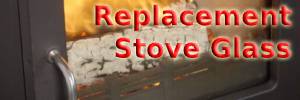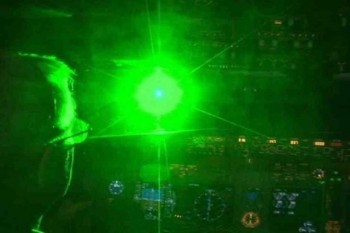Shining lasers at pilots, train or bus drivers could mean attackers face fines or jail sentence under new laws.
People shining laser pens to distract pilots, train and bus drivers could face fines of thousands of pounds or a jail sentence under stronger new powers designed to protect the public.
Shining lasers at any transport operator will become an offence under new legislation. This new law will make it even safer for aircraft travel as well as passengers using buses, taxis and trains both now and in the future.
Currently, it is an offence to shine lasers at pilots and offenders could face fines of up to £2,500. But police do not have the powers to effectively tackle and investigate the inappropriate use of laser devices against aircraft, trains, buses and other forms of transport. One of the current laws means that police have to prove a person endangered the aircraft when committing the offence of shining a laser, whereas the new law will mean that police will only have to prove the offence of shining the laser.
Secretary of State for Transport, Chris Grayling said:
Shining a laser pointer at pilots or drivers is incredibly dangerous and could have fatal consequences. Whilst we know laser pens can be fun and many users have good intentions, some are not aware of the risks of dazzling drivers or pilots putting public safety at risk. That’s why we want to take the common sense approach to strengthen our laws to protect the public from those who are unaware of the dangers or even worse, intentionally want to cause harm. This kind of dangerous behaviour risks lives and must be stopped.
There are around 1,500 laser attacks on aircraft every year in the UK and we know there have been similar attacks on trains and buses. What I am announcing today (5 February 2017) are plans to give the police effective powers to investigate and bring those who misuse lasers to justice.
The powers and penalties for the offence will be outlined in upcoming legislation.
Steve Landells, Flight Safety Specialist at the British Airline Pilots Association (BALPA) said:
BALPA welcomes this move to tighten the law on lasers. Any move to give the police and authorities more powers to tackle this real and growing threat to flight safety is a good thing, and we are pleased that the government has included action on lasers in this bill”.
The first laser attack on an aircraft was reported in 2004 with over 200 attacks reported per year by 2008. Since 2011, there have been approximately 1,500 attacks per year on aircraft.
|
|
||||||
Check Todays Deals on Ebay.co.uk Your Comments:
Custom Search

|
You are in:
UK /
Barking / London
Find any Town in the UK, or Use UK map Local Google MAP for Barking Check Todays Deals On Amazon.co.uk Check Todays Deals on Ebay.co.uk 


 Be Seen - Advertise on Qlocal Corporate Sponsors
Southport Piano and Music Academy Washroom Services Maximum Grounds Maintenance Southport Garden Services Ormskirk Garden Services Sanitary Bins Nappy Bins & Waste Disposal Confidential Shredding Services Legionella Risk Testing London Washroom Services Croydon Washroom Services Hounslow Washroom Services Wandsworth Washroom Services Havering Washroom Services Sanitary Bins London Clinical Waste London General Waste London Legionella Testing London Shredding London Tatoo Waste London Preston Bird Control Blackpool Bird Control
UK, Local Online News Community, Forums, Chats, For Sale, Classified, Offers, Vouchers, Events, Motors Sale, Property For Sale Rent, Jobs, Hotels, Taxi, Restaurants, Pubs, Clubs, Pictures, Sports, Charities, Lost Found
barking,
barking News,
|
|||||





 Reply With Quote
Reply With Quote